By Adam Pagnucco.
WAMU management may have tried to put a positive spin on its layoffs and closure of DCist last week, but the truth is ugly. Using Twitter and news articles, here is an incomplete list of departed employees that I was able to assemble.
Jen Abella, web developer.
Héctor Alejandro Arzate, immigrant community reporter.
Morgan Baskin, housing reporter.
Rob Bertrand, chief technology officer.
Denisse Bonilla-Chaoui, administration.
Chris Chester, web producer, audience editor and growth editor.
James Coates, assistant director of online strategy, fundraising coordinator.
Rebecca Cooper, arts and food editor.
Eric Falquero, partnerships editor.
Jacob Fenston, environmental reporter.
Teresa Frontado, news director.
Jenny Gathright, criminal justice reporter.
Abbey Monsour, audience editor.
In reviewing this list, this is no staff trim around the margins. This is the core of WAMU/DCist’s operation, both editorial and back office. The Washington Post has reported that a newsroom that once had 14 journalists will now have four.
And what of WAMU’s promised focus on audio? The station’s former employees, and even a couple current ones, are challenging that claim. Many of them are pointing out that reporters had dual roles of producing content for both the website and the station’s audio programs. Subtract the reporters and where’s the audio? See the tweets below.
Former WAMU/DCist reporter Aja Drain, February 23
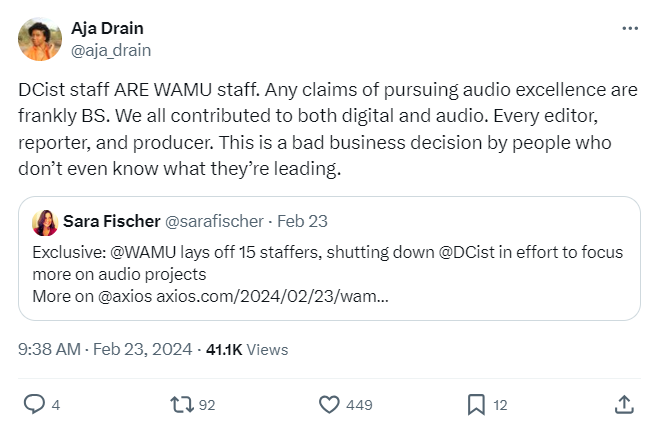
Former DCist managing editor Natalie Delgadillo, February 23
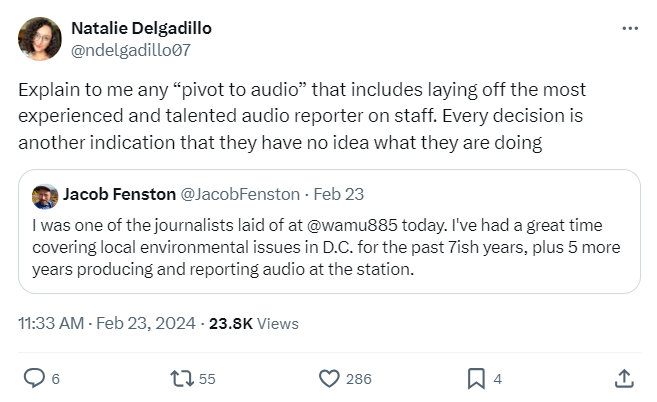
Former WAMU reporter Morgan Baskin, February 23
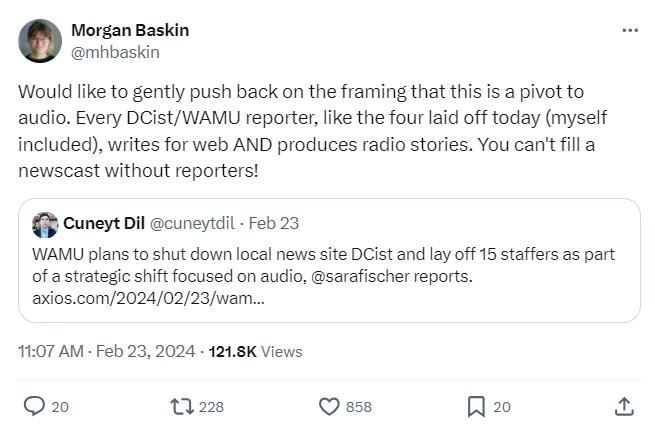
WAMU supervising audio producer/editor Chris Remington, February 23
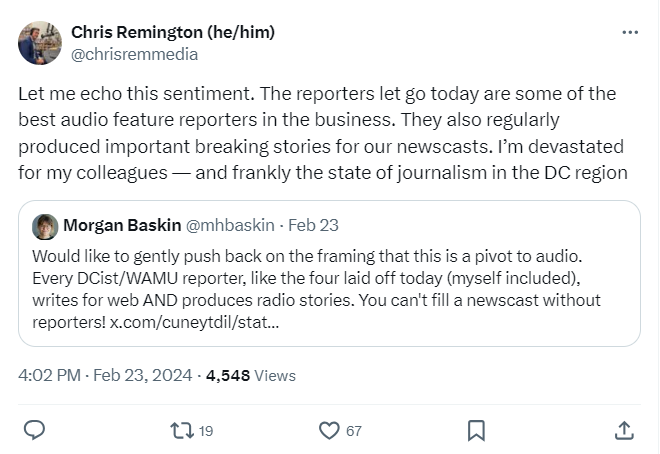
NPR White House reporter Tamara Keith, February 23

Washington Post reporter Rachel Kurzius, February 23
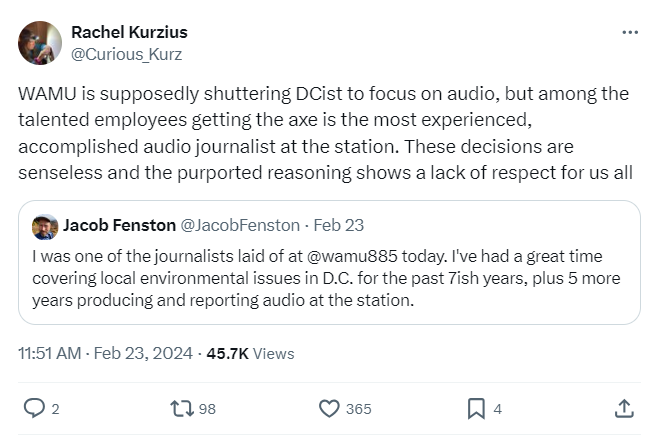
Former WAMU reporter/editor Martin Austermühle, February 23 and February 27
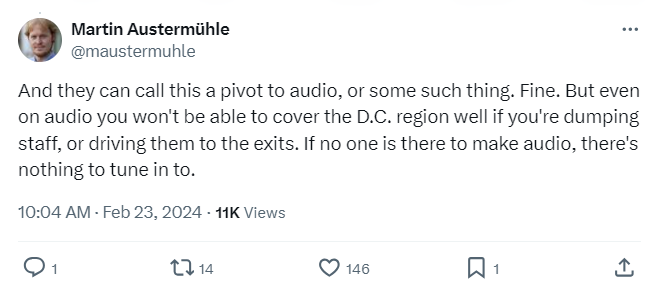
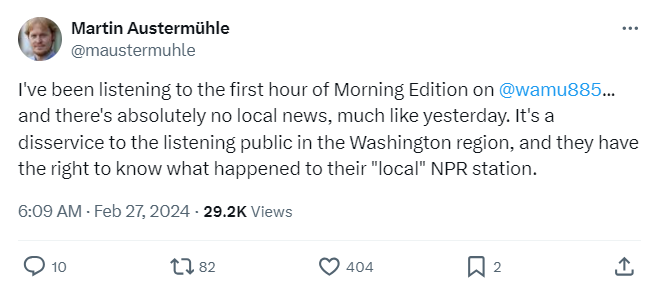
WAMU/DCist reporter Sarah Y. Kim, February 25
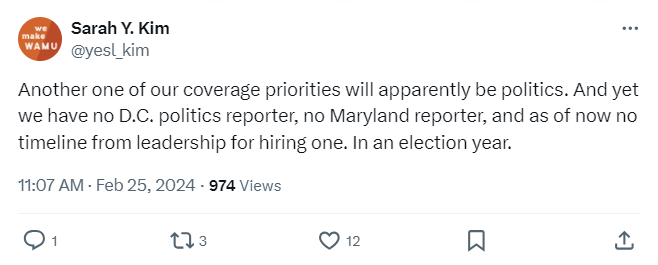
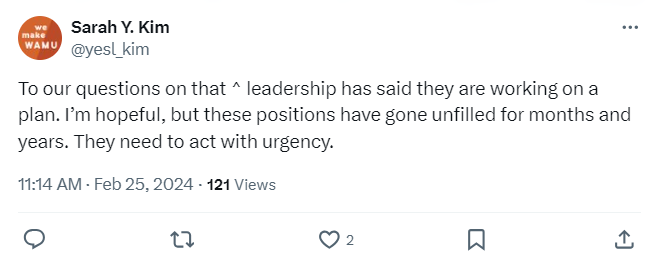
The sheer volume of layoffs and the integration between website reporting and audio should arouse great skepticism of any claims by WAMU’s management of any “focus” on audio. Sure, they’re a radio station, so by definition there will be audio of some kind. But without local reporters, there won’t be much local content in that audio. And that’s exactly what I am hearing from regular WAMU listeners right now.
I am not done looking at what happened to WAMU. There will be more to come soon.
